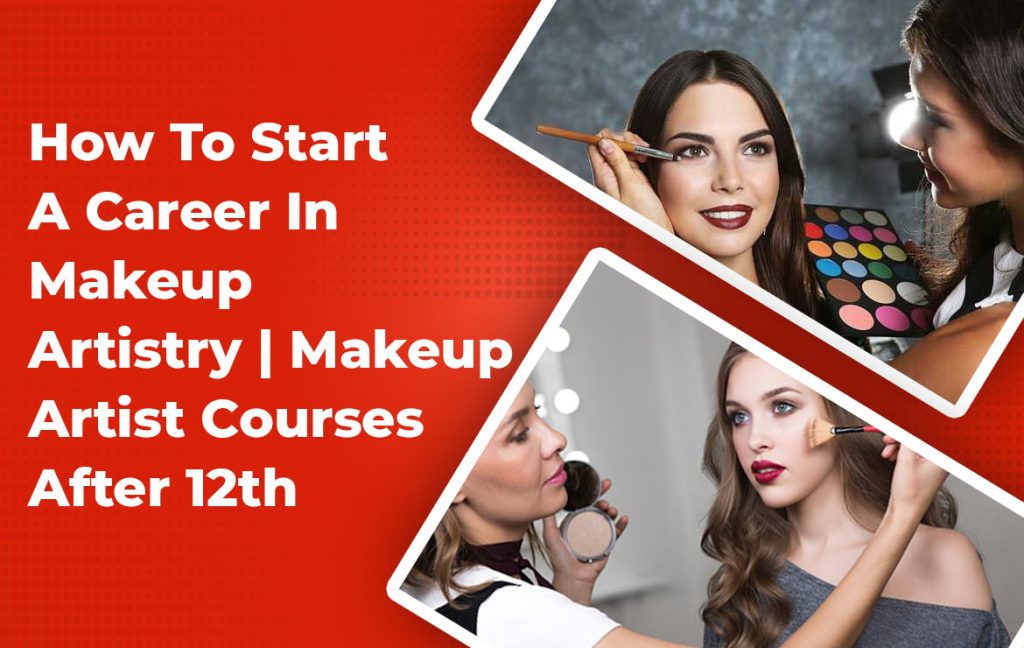Are you wondering if completing online courses in beauty will lead to career opportunities? Look no further! Centre of Wellness offers a range of Beauty Training Courses that can help you kickstart your career in the beauty industry. Whether you’re interested in becoming a makeup artist or a skincare specialist, these online courses provide you with the necessary skills and knowledge to succeed. Don’t let geographical limitations hinder your dreams – with online courses, you can learn at your own pace and convenience. So, why wait? Start your journey towards a fulfilling career in beauty today with Centre of Wellness!
Understanding the Potential of Online Beauty Courses
What are online beauty courses?
online beauty courses are educational programs that allow individuals to learn various beauty-related skills and techniques through virtual platforms. These courses are designed to provide flexibility and convenience for aspiring beauty professionals who may not have the opportunity to attend traditional in-person classes. With online beauty courses, you can access educational materials, lectures, and hands-on demonstrations through the internet, making it accessible to anyone with a computer or mobile device.
The benefits of online beauty courses
Online beauty courses offer several advantages that make them an attractive option for those interested in pursuing a career in the beauty industry. First and foremost, the flexibility of online courses allows you to learn at your own pace and according to your schedule. This is especially beneficial for individuals who are working or have other commitments, as it allows them to study beauty techniques and skills in their free time.
Additionally, online beauty courses often provide a more cost-effective alternative to traditional education. While attending a brick-and-mortar institution may involve expenses such as transportation, accommodation, and course materials, online courses eliminate these overhead costs. Moreover, online courses tend to be more affordable, making them accessible to individuals from various financial backgrounds.
Furthermore, online beauty courses also offer the opportunity to learn from industry professionals from around the world. These courses often attract experienced and renowned instructors who share their expertise and provide valuable insights into the beauty industry. With online courses, you can learn from the best, regardless of your geographical location.
The limitations of online beauty courses
While online beauty courses offer numerous benefits, it’s important to be aware of the limitations they may have. One of the main drawbacks of online courses is the lack of hands-on experience. Beauty professions, such as hairstyling or makeup artistry, require practical skills that cannot be fully developed through theoretical lessons alone. Without in-person guidance, it may be challenging to grasp certain techniques or overcome specific challenges that arise in a real-world setting.
Additionally, online beauty courses may have limited resources or equipment compared to traditional educational institutions. In a physical classroom or salon setting, there is access to a wide range of tools, products, and facilities that are essential for hands-on training. While online courses often provide alternative methods for practical learning, such as simulation software or video demonstrations, they may not fully replicate the experience and advantages of in-person training.
It’s vital to recognize that different individuals may have different learning styles, and while online beauty courses suit some, others may thrive in a traditional classroom setting. Considering your own preferences and the specific requirements of your desired beauty profession will help you make an informed decision about which type of education is best for you.
Exploring the Beauty Industry
Overview of the beauty industry
The beauty industry is a thriving sector that encompasses a wide range of professions and services related to personal care and aesthetics. This includes hairstyling, makeup artistry, skincare, nail care, and spa treatments, among others. The industry is driven by individuals’ desire to enhance their appearance, boost their self-confidence, and enjoy a sense of self-care and relaxation.
Beauty professionals play a crucial role in the industry, providing their expertise and services to meet the diverse needs and preferences of clients. From working in salons and spas to freelance opportunities, beauty professionals have numerous avenues to showcase their skills and contribute to the industry’s growth.
Growing demand for beauty professionals
The demand for beauty professionals has been steadily increasing over the years. With the rise of social media, influencers, and digital platforms, there is a greater emphasis on personal appearance and the desire to maintain a polished and attractive image. This has resulted in a higher demand for beauty services and professionals who can deliver exceptional results.
Moreover, the beauty industry is known for being resilient, even during economic downturns. People continue to invest in self-care and beauty treatments, making it a stable and promising field for career growth. Whether you choose to specialize in hairstyling, makeup artistry, or skincare, there are ample opportunities to excel and establish yourself as a trusted professional.
Different career paths in the beauty industry
The beauty industry offers a wide array of career paths, allowing individuals to explore and specialize in their areas of interest. Here are a few popular career options within the beauty industry:
-
Hairstylist: As a hairstylist, you will be trained in various hair cutting, coloring, and styling techniques. Your clients may range from everyday individuals seeking a new look to celebrities and models preparing for special events or photoshoots.
-
Makeup Artist: Makeup artists are responsible for creating stunning looks, whether it’s for weddings, fashion shows, or film and television. With proper training and knowledge of different makeup techniques, you can transform faces and enhance natural beauty.
-
Esthetician: Estheticians focus on skincare treatments and can provide services such as facials, waxing, and body treatments. They also guide clients in developing personalized skincare routines and recommending products to address specific concerns.
-
Nail Technician: As a nail technician, you will specialize in nail care and treatments. This includes manicures, pedicures, and applying nail enhancements like acrylic or gel nails. Nail technicians often work in salons or may even start their own business.
-
Spa Therapist: Spa therapists provide a range of therapeutic treatments, including massages, body wraps, and aromatherapy. These professionals create a relaxing and rejuvenating experience for clients, promoting overall wellness and stress relief.
These are just a few examples of the diverse career paths that exist within the beauty industry. It’s important to explore different options and determine which area aligns with your skills, interests, and long-term goals.
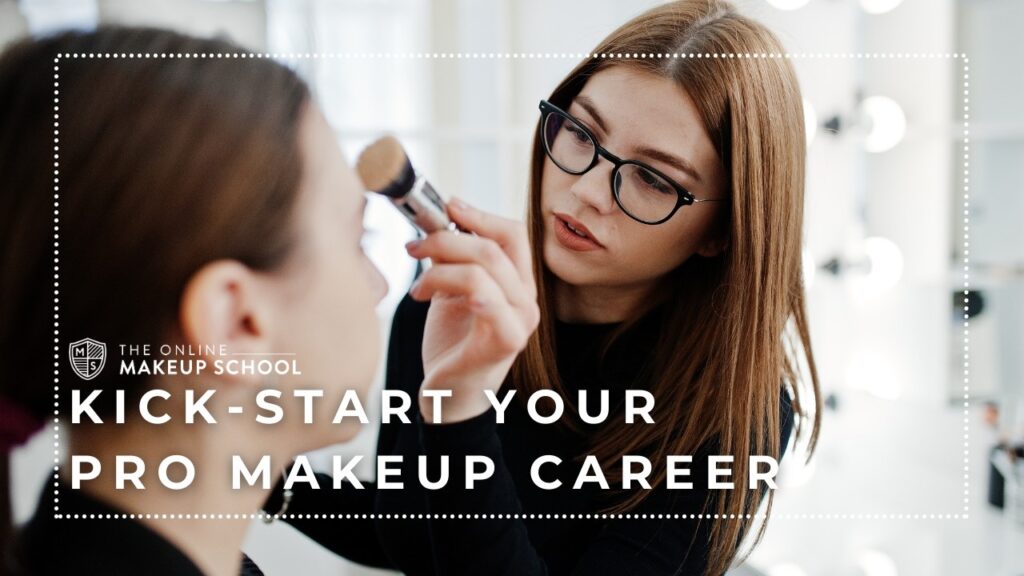
This image is property of kajabi-storefronts-production.kajabi-cdn.com.
Evaluating the Quality of Online Beauty Courses
Accreditation and certification
When considering online beauty courses, it is essential to ensure that the program you choose is accredited and recognized by relevant industry bodies. Accreditation ensures that the course meets specific quality standards and that the education provided is recognized and respected within the beauty industry.
Take the time to research and verify the accreditation status of the online beauty courses you are interested in. Look for certifications from reputable organizations or governing bodies associated with the beauty industry. Accreditation not only enhances the credibility of your education but also increases your chances of finding employment or pursuing further education in the future.
Course curriculum and materials
A comprehensive and well-structured course curriculum is crucial to gaining a thorough understanding of beauty techniques and practices. Before enrolling in an online beauty course, review the curriculum to ensure that it covers a wide range of topics and provides a holistic education.
Look for courses that include theoretical knowledge, practical demonstrations, and opportunities for hands-on training. A well-designed curriculum will incorporate various teaching methods, such as video tutorials, interactive modules, and quizzes to reinforce learning. This variety of learning materials helps cater to different learning styles and allows for a more engaging and effective educational experience.
Feedback and reviews from past students
One way to gauge the quality and effectiveness of an online beauty course is to read reviews and testimonials from past students. Their experiences can provide valuable insights into the course’s strengths, weaknesses, and overall effectiveness in preparing students for their careers.
Look for online forums, social media groups, or review websites where students discuss their experiences with specific courses. Pay attention to the feedback regarding the course content, the support provided by instructors, and how well students felt prepared for real-world beauty scenarios. This firsthand information can help you make an informed decision about the quality of the course and whether it aligns with your expectations.
Gaining Practical Experience
Importance of hands-on experience
While online beauty courses provide theoretical knowledge and foundational skills, practical experience is crucial for becoming a competent beauty professional. Hands-on experience allows you to refine your techniques, develop your creativity, and gain the confidence necessary to excel in the industry.
Practical experience also helps you understand the nuances and intricacies of different skin types, hair textures, and client preferences. Being able to adapt and customize your services based on individual needs is invaluable and can only be fully achieved through real-world practice.
Finding opportunities for practical training
Although online beauty courses may have limitations when it comes to hands-on training, there are still ways to gain practical experience. Look for local beauty salons or spas that offer internships, apprenticeships, or part-time positions for aspiring beauty professionals.
By actively seeking out these opportunities, you can work alongside experienced professionals, observe their techniques, and practice under their guidance. This practical training will enable you to hone your skills, learn industry-specific tips and tricks, and familiarize yourself with the day-to-day operations of a beauty establishment.
Networking and building professional relationships
Networking plays a crucial role in the beauty industry. Building professional relationships with fellow students, instructors, and industry insiders can open doors to new opportunities, mentorship, and collaborations.
While online beauty courses may not offer the same level of in-person interaction as traditional training, you can still leverage virtual communities and platforms to connect with others in the industry. Join online forums, social media groups, and professional networking websites to engage with like-minded individuals, share insights, and gain exposure to industry trends and advancements. Networking can help you stay updated with the latest techniques, build a solid support system, and even lead to job opportunities or client referrals.
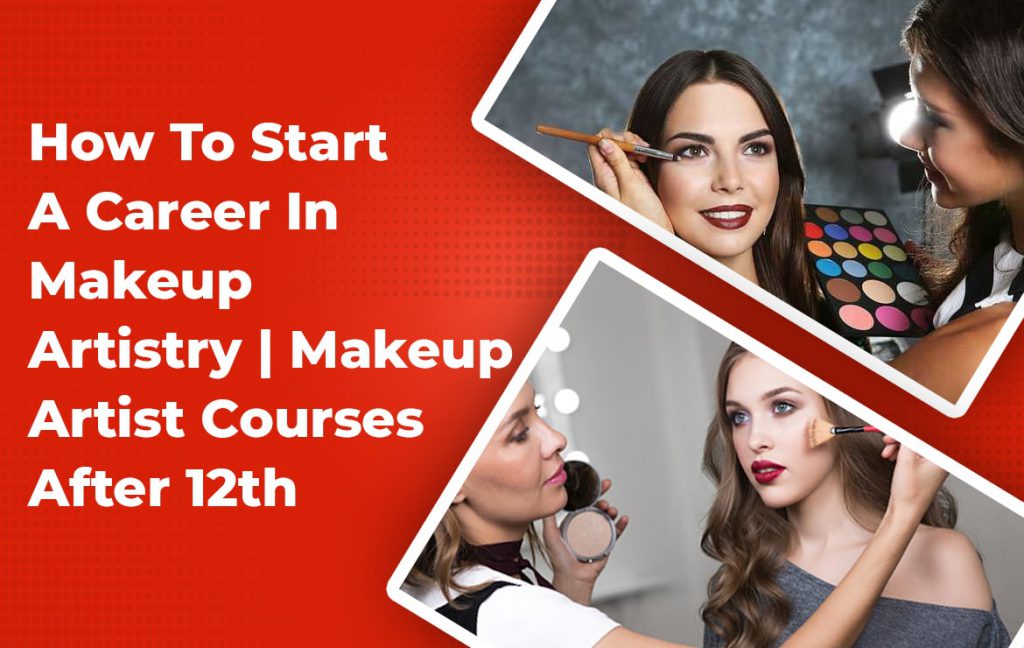
This image is property of becomebeautyexpert.com.
Building a Portfolio
Importance of a beauty portfolio
A beauty portfolio is a collection of your work that showcases your skills, creativity, and versatility as a beauty professional. It serves as a visual representation of your abilities and is essential for attracting clients, securing job opportunities, and establishing your credibility in the industry.
A well-curated portfolio allows potential clients or employers to assess your capabilities and determine if your style aligns with their needs. It provides proof of your expertise and acts as a platform to highlight your best work, demonstrating your range and ability to deliver desired results.
Showcasing skills and expertise
In your beauty portfolio, include a diverse range of examples that highlight your skills and areas of expertise. Include before and after photos, demonstrating the transformations you can achieve with your techniques. Additionally, showcase a variety of styles, from natural and understated looks to bold and avant-garde creations, to demonstrate your versatility as a beauty professional.
Remember to include any notable achievements, such as certifications, awards, or recognition received during your education or career. These accolades further strengthen your portfolio and provide additional evidence of your dedication and skill in the industry.
Creating a portfolio with online courses
Although online beauty courses may not provide the same level of hands-on experience as traditional training programs, they can still contribute to building a compelling portfolio. Utilize the knowledge gained from online courses to create your own beauty looks and experiment with different techniques.
Practice on yourself, friends, or family members, and document your work through high-quality photographs or videos. As you progress in your learning, update your portfolio accordingly, replacing older examples with newer and more refined ones that showcase your growth and improved skills.
Consider collaborating with photographers, models, or local businesses to expand your portfolio. These collaborations provide an opportunity to work with different individuals, styles, and aesthetics, further enhancing your portfolio and demonstrating your adaptability as a beauty professional.
Navigating Job Opportunities
Job prospects for beauty professionals
The beauty industry offers a multitude of job opportunities, with a wide range of careers and work settings to choose from. As the demand for beauty services continues to grow, professionals with the right skills and qualifications will find themselves in high demand.
Salons and spas are common employment settings for beauty professionals, offering stability and a structured work environment. However, many beauty professionals also choose self-employment, opening their own studios or freelancing to offer their services independently. This entrepreneurial path allows for more flexibility, creative freedom, and the potential for higher income.
Additionally, the beauty industry intersects with various sectors such as fashion, film and television, retail, and even healthcare. This opens up opportunities for beauty professionals to work in diverse settings, such as backstage at fashion shows, on film sets, or as consultants for skincare brands. Remaining open to exploring different avenues within the industry can lead to unique and fulfilling career paths.
Considering self-employment
Self-employment in the beauty industry can be highly rewarding, but it also requires careful planning, dedication, and the willingness to take on the responsibilities of running a business. When considering self-employment, it’s essential to assess your skills, expertise, and the market demand for your services.
Develop a business plan that outlines your goals, target market, pricing structure, and marketing strategies. Embrace continuous learning and stay updated with industry trends to position yourself as an expert in your field. Building a strong professional network and leveraging social media platforms can also help create awareness for your services and attract potential clients.
Keep in mind that self-employment also requires effective time management, financial planning, and the ability to handle aspects such as client bookings, product inventory, and maintaining a positive client experience. The reward of being your own boss, setting your own schedule, and having creative freedom can often outweigh the challenges associated with self-employment.
Researching job openings and requirements
To navigate job opportunities in the beauty industry, it’s crucial to stay informed about current openings and the specific requirements of each position. Regularly check job boards, industry-specific websites, and social media groups where beauty-related positions are often advertised.
When reviewing job descriptions, pay attention to the qualifications, certifications, and experience that employers are seeking. Tailor your resume and cover letter to highlight the skills and knowledge you have acquired through online courses, practical training, or previous work experiences. Remember to also emphasize any unique abilities or specialties that set you apart from other applicants.
When applying for beauty positions, consider submitting your portfolio as part of your application. This allows potential employers to see tangible evidence of your skills and creativity. Networking and attending industry events or trade shows can also help you connect with professionals in the field and potentially discover job opportunities that may not be advertised elsewhere.
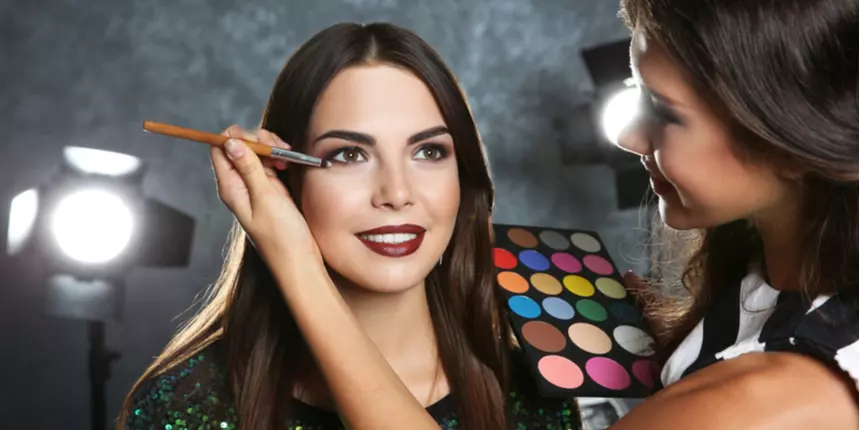
This image is property of cache.careers360.mobi.
Continuing Education and Specializations
Advancing knowledge and skills
Continuing education plays a significant role in the beauty industry, where trends, techniques, and technologies are constantly evolving. It’s important to stay updated with the latest developments, as this not only enhances your expertise but also ensures that you are providing clients with the most current and relevant services.
Consider pursuing advanced online beauty courses, attending workshops, or participating in seminars to expand your knowledge. Look for courses that focus on emerging trends, innovative techniques, or specialized areas within the beauty industry that interest you. Continuing education not only keeps you competitive in the job market but also allows you to offer a broader range of services to meet the evolving demands of clients.
Pursuing specialized areas in beauty
The beauty industry offers numerous specialized areas that allow professionals to focus on specific interests or niche markets. Choosing a specialization enables you to develop expertise in a particular field, enhancing your value and potentially increasing your earning potential.
For example, you may choose to specialize in bridal makeup, working closely with brides to create their dream wedding look. Alternatively, you could focus on skincare and become an expert in treating specific skin conditions or utilizing advanced skincare technologies. By specializing, you position yourself as a go-to professional in your chosen area, attracting clients seeking your specific skills.
Courses and certifications for specialization
Specializing in a particular area of the beauty industry often requires additional training and certifications. Look for online courses or workshops that focus on the specific specialization you are interested in. These courses may delve deeper into advanced techniques, in-depth knowledge about specific products or tools, or specialized treatments.
Certifications from reputable organizations or industry bodies further enhance your credibility and can instill confidence in potential clients. Research industry-recognized certifications that are relevant to your chosen specialization and invest in acquiring these credentials. This not only demonstrates your dedication to continuous learning but also provides a competitive advantage in your area of expertise.
Getting Licensed and Certified
Licensing requirements for beauty professionals
Many countries and states have specific licensing requirements for beauty professionals, which may vary depending on the type of service you intend to provide. Before embarking on a career in the beauty industry, familiarize yourself with the licensing regulations in your jurisdiction.
Licensing typically involves completing a certain number of training hours, passing practical exams, and sometimes even written tests. Skills such as sanitation and hygiene practices are often emphasized to ensure the safety and well-being of clients. Contact your local regulatory authority or licensing board to obtain precise information on the requirements and processes involved in obtaining a license.
Complying with licensing requirements not only ensures legal compliance but also demonstrates your commitment to professionalism and maintaining industry standards.
The role of certifications
Certifications in the beauty industry serve as proof of your competence and qualifications in specific skills or areas. While licensing requirements usually focus on the legal aspects of practicing as a beauty professional, certifications provide additional validation of your knowledge and expertise beyond the basic requirements.
Certifications can come from reputable training institutions, recognized industry associations, or well-known brands in the beauty industry. Invest in certifications that align with your career goals and desired specialization. These certifications can enhance your resume, attract potential clients or employers, and instill trust and confidence in those seeking beauty services.
Meeting industry standards
Meeting industry standards is integral to succeeding in the beauty industry. Clients expect beauty professionals to adhere to high-quality standards, maintain hygiene and safety protocols, and deliver the best possible results. By obtaining the necessary licenses and certifications, staying updated with industry trends, and continuously improving your skills, you can meet and exceed these expectations.
Complying with regulations and industry standards also protects your professional reputation and helps build trust with clients. Striving for excellence and professionalism will not only lead to client satisfaction but also contribute to your long-term success in the beauty industry.
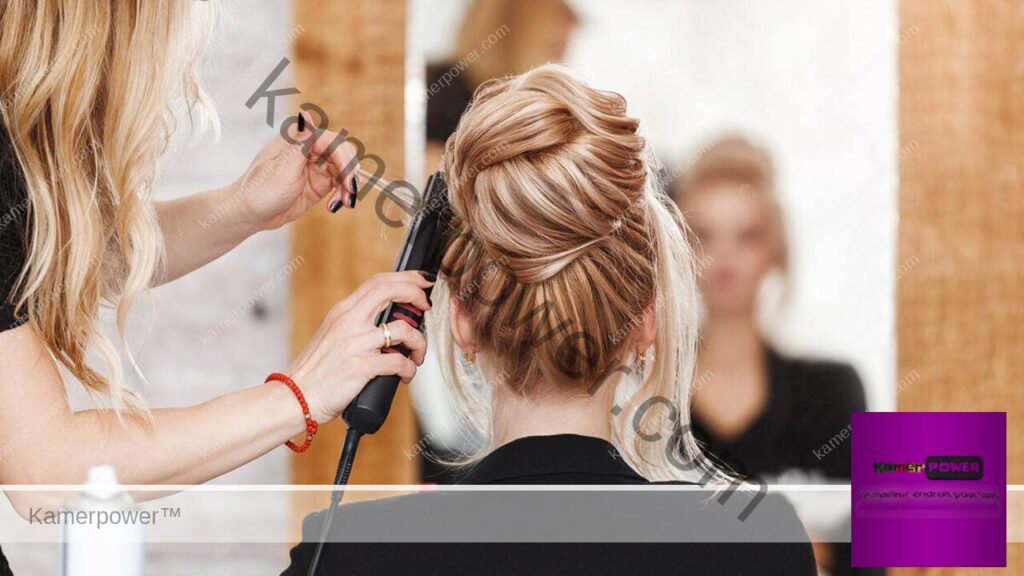
This image is property of cdn.kamerpower.com.
Overcoming Challenges in Online Beauty Education
Motivation and self-discipline
One of the common challenges of online beauty education is maintaining motivation and self-discipline. Without the structure of a traditional classroom or the presence of peers and instructors, it can be easy to lose focus or procrastinate.
To overcome this challenge, establish a study routine that works for you and stick to it. Set specific goals or deadlines for completing modules or assignments to maintain a sense of progress. Create a dedicated study space that is free from distractions, where you can fully immerse yourself in the material. Additionally, actively engage with the course content by taking detailed notes, asking questions, and participating in online discussions or forums.
Remember why you enrolled in the course in the first place and keep your goals in mind. Visualize the professional opportunities and personal growth that await you upon successful completion of the program. By staying motivated and disciplined, you can make the most out of your online beauty education.
Establishing a practical learning environment
Online beauty courses may lack the physical space and equipment typically found in traditional training settings. However, it is still possible to create a practical learning environment at home.
Arrange your study area to accommodate the tools and products you will be working with. Invest in essential beauty supplies and equipment, such as practice mannequins, clean and sanitize tools regularly, and set up a designated area for practicing techniques. This will help you replicate aspects of hands-on training and allow for a more immersive learning experience.
Ensure you have access to a reliable internet connection, as online courses often include video demonstrations, live sessions, or interactive elements. Adequate lighting and a well-organized workspace will also contribute to a productive and efficient learning environment.
Overcoming technological barriers
Online beauty education relies heavily on technology, and technical difficulties can be frustrating. Poor internet connectivity, software compatibility issues, or difficulty navigating the online platform can hinder your learning experience.
To overcome technological barriers, familiarize yourself with the online platform before starting the course. Take the time to explore its features, understand how to access course materials, and troubleshoot common technical issues.
Keep technical support information readily available, whether it’s the website’s FAQ section or contact details for the course provider’s support team. If you encounter a problem, reach out for assistance promptly to minimize any disruption in your learning journey.
Developing basic computer skills, such as file management, using online communication tools, and troubleshooting common issues, can also help you navigate online beauty courses more seamlessly. Embrace technology as a tool to enhance your learning experience and overcome any initial challenges that arise.
Considering the Value of Traditional Training
Differentiating online and traditional beauty education
Traditional beauty education refers to learning that occurs within a physical classroom or training facility, with face-to-face interactions between students and instructors. It often includes hands-on practice, immediate feedback, and exposure to a professional salon or spa environment.
Online beauty education, on the other hand, occurs through virtual platforms and provides flexibility in terms of pace and location. It focuses more on theoretical knowledge, with limited opportunities for practical training and direct interaction with instructors.
Both traditional and online beauty education have their unique strengths and limitations. Traditional training excels in providing hands-on practice, immediate feedback, and in-person demonstrations. It offers a physical space dedicated to beauty education, access to industry-standard equipment, and opportunities for networking with peers and industry professionals.
Online beauty education, however, offers convenience, flexibility, and often more affordable options. Access to expert instructors from around the world, self-paced learning, and the ability to revisit course materials are some of the advantages of online courses.
Benefits of hands-on traditional training
Hands-on traditional training plays a significant role in the development of practical skills and confidence as a beauty professional. Working directly with clients, observing experienced practitioners, and receiving immediate feedback allows for real-time adjustments and improvements in technique.
Practicing on live models in a supervised environment also presents unique challenges that cannot be fully replicated in an online setting. Learning to adapt to different client needs, identifying and addressing specific concerns, and managing time and client expectations are valuable skills gained through hands-on traditional training.
Additionally, traditional training often includes specialized facilities, such as beauty labs or student salons, where students can practice their skills in a simulated salon setting. This exposure helps prepare them for the reality of working in a professional beauty establishment.
Combining online and traditional education
While traditional education offers the benefits of immersive practical training, combining it with online education can provide an ideal blend of flexibility, convenience, and hands-on experience. Many educational institutions now offer hybrid programs that integrate online coursework with in-person classes or workshops.
By combining traditional and online education, you can take advantage of the convenience and flexibility of online courses while still benefiting from hands-on practice and direct interaction with instructors. This blended approach offers the best of both worlds, allowing you to develop practical skills under the guidance of experienced professionals while enjoying the flexibility and resources provided by online courses.
Tailor your education to your specific needs and goals. Determine which skills require hands-on training and seek out programs or workshops that offer in-person instruction in those areas. Supplement your learning by enrolling in online courses to expand your theoretical knowledge, explore specialized subjects, or learn from instructors who may be geographically distant.
In conclusion, online beauty courses provide a valuable opportunity to pursue a career in the beauty industry at your own pace and convenience. While they offer flexibility and cost-effectiveness, it is crucial to consider the limitations and the importance of practical hands-on experience. By strategizing your education, leveraging opportunities for practical training, and staying engaged within the industry, you can pave the way for a successful and fulfilling career in beauty.

